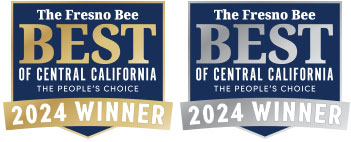- RM-010
- Intro to Food Service Op.
- Credit(s) 3
Introduction to Food Service Operations
RM 010 is an overview of the basic principles, procedures and fundamentals concepts
relating to food service operations. This course emphasizes the history of food service
operations from ancient to modern times, types of food service operations, food safety,
menu planning, purchasing, receiving and inventory control, production and distribution
systems, facility planning, marketing and human resource management.
- Class Hours:
- 54 Lecture
- Advisory(s):
- CUL 050
- P/NP
- Transfers to:
- CSU
- RM-011
- Food and Beverage Service
- Credit(s) 3
Food and Beverage Service
RM 011 identifies the crucial elements involved in the successful operation of
a food and beverage service and their relationships. This course emphasizes the management
of marketing, operation, cost and design control, facilities and equipment requirements
and product selection. In addition, this course provides special emphasis on staff
training and development and legal for beverage sales.
- Class Hours:
- 54 Lecture
- Advisory(s):
- CUL 050
- P/NP
- Transfers to:
- CSU
- RM-012
- Food and Beverage Cost
- Credit(s) 3
Food and Beverage Cost
RM 012 is designed to provide the basic skills required to understand and utilize
cost control systems. This course provides instruction in managing income and expenses
associated with food and beverage operations. It provides an overview of managing
the cost of food, beverage, labor, and other expenses as well as determining sales
volume and analyzing trends to improve the overall income system.
- Class Hours:
- 54 Lecture
- Advisory(s):
- CUL 050
- Transfers to:
- CSU
- RM-061
- Culinary Theory and Fund.
- Credit(s) 3
Culinary Theory and Fundamentals
RM 061 is an introductory course in the culinary arts. This course emphasizes
the origins of professional food preparation, terminology, tools and equipment, safety
and sanitation requirements for ServSafe certification, basic food preparation and
cooking fundamentals, principles, and techniques.
- Class Hours:
- 54 Lecture
- Advisory(s):
- CUL 050
- RM-063
- Culinary Concepts
- Credit(s) 3
Culinary Concepts
RM 063 is an overview of food history, nutrition, and classical culinary concepts.
This course provides instruction in the history of foodstuff and the development of
mankind, principles of nutrition in food preparation, and classical French culinary
techniques, processes and methods. Special emphasis is placed on classical French
cooking theories, the principles of Escoffier, classical French sauces, stocks, flavoring/seasoning
techniques, and soups. The course covers meat, poultry, fish, and shellfish cooking
techniques as well as vegetable, potatoes, and other starch preparation and cooking
techniques.
- Class Hours:
- 36 Lecture | 54 Laboratory
- Advisory(s):
- CUL 050
- RM-064
- Cuisine's of the World
- Credit(s) 3
Cuisines of the World
RM 064 emphasizes the principles, procedures, and techniques of food preparation
associated with traditional cuisines of the Americas, Europe and Asia. This course
will provide instruction in selecting and preparing traditional cuisine from America,
Europe and Asia, equipment requirements, storage, herbs and spices, sauces, and entr�e
preparation techniques.
- Class Hours:
- 36 Lecture | 54 Laboratory
- Advisory(s):
- CUL 050
- RM-065
- Catering and Beverage Services
- Credit(s) 3
Catering and Beverage Services
RM 065 emphasizes basic catering and beverage service concepts and principles
and procedures in relation to providing quality products and services. This course
focuses on historical banqueting, trends within the catering and beverage service
industries, styles of catering operations, catering menu program and design, catering
procedures and techniques, tools and equipment for catering and beverage service operations,
staffing requirement, purchasing, receiving and storage procedures, and regulations
governing catering and beverage service operations.
- Class Hours:
- 54 Lecture
- Advisory(s):
- CUL 050
- RM-066
- Event Plan/Spcl Event Tourism
- Credit(s) 3
Event Planning & Special Event Tourism
RM 066 is a comprehensive study of event planning and special event tourism. This
course provides instruction in the stages of successful event development, scheduling
and organizational elements, catering, marketing, legal requirements, and risk management
as well as instruction in the history of tourism, motivation for tourism, and tourism
as it applies to special event venues.
- Class Hours:
- 54 Lecture
- Advisory(s):
- CUL 050
